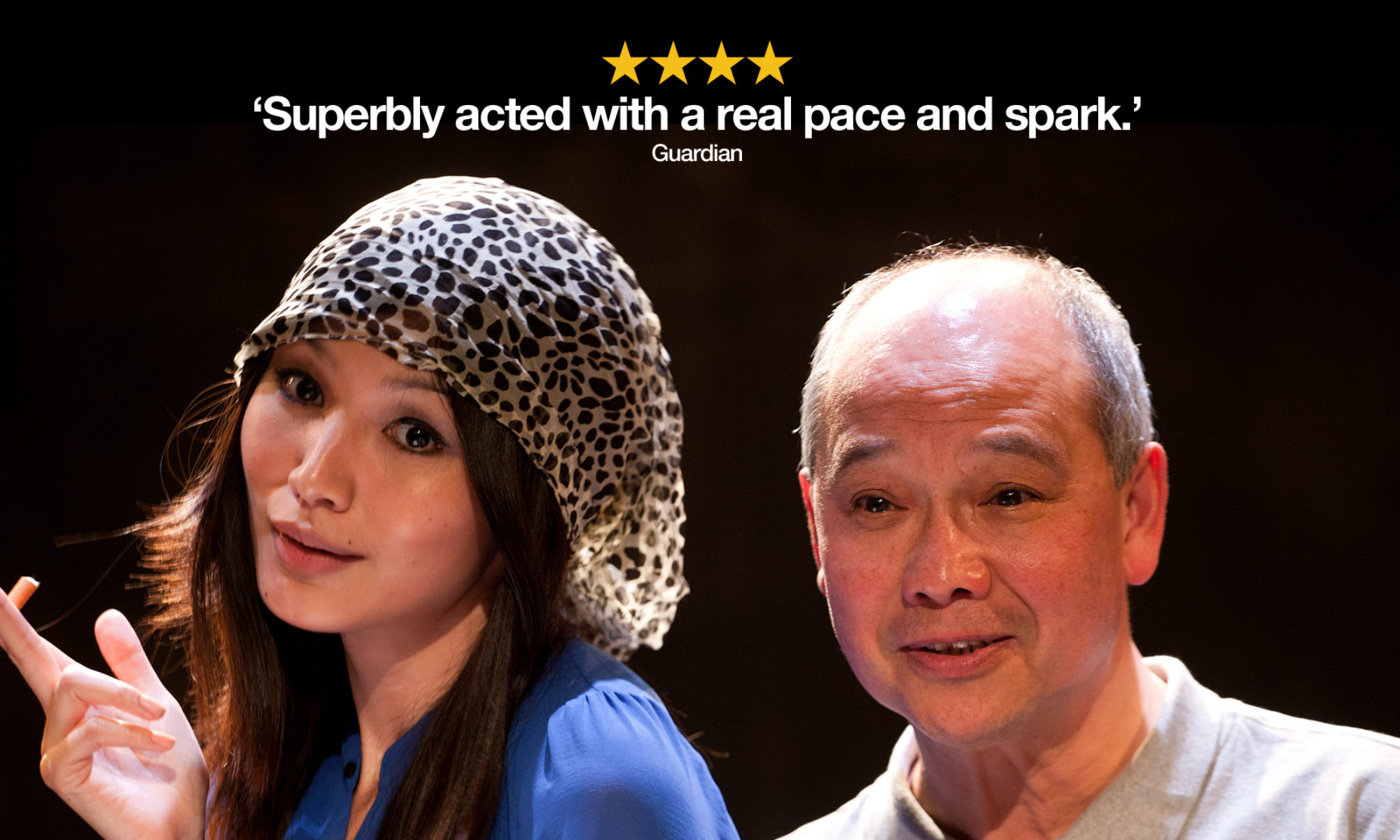Dr Amanda Rogers is a Lecturer in Human Geography at Swansea University. She researches racial-ethnic politics in theatre and is the author of Performing Asian Transnationalisms: Theatre, Identity and the Geographies of Performance.
Yellow Face: The Play and the Practice
David Henry Hwang’s Yellow Face starts from a simple premise: what if someone you thought was Asian turns out to be white? Drawing on the controversy over the Broadway casting of Jonathan Pryce as The Engineer in Miss Saigon, the play turns into a contemporary farce about mistaken racial identity. In the process, it raises a host of questions around the politics of perception: to what extent are our expectations about racial identity predetermined? Can you tell someone’s racial identity just by looking? Are we all defined by our race? Is it possible to see beyond it? Can we do so whilst recognising that racism still exists? Is that racism located within minority Asian communities as much as outside them? Who gets to define race? And what does race even mean?
The controversial practice of yellowface is an apt site for raising these issues. Typically, it involves white actors using make-up and prosthetics to appear Asian (normally Chinese) but yellowface can also include a shuffling walk, a cod accent and gibberish baby talk. Such practices produce stereotypes that reflect social anxieties around racial difference but they also highlight the problem of representation, because white bodies control what it means to look, perform, be Asian. Although yellowface is epitomised by the characters of Charlie Chan and Dr Fu Manchu, from the 1950s onwards, it was used to put white actors in non-stereotypical Asian parts. Yellowface thus became linked to the politics of casting with white actors used on the basis that there were not enough qualified Asian actors to play leading roles. These rationales, deployed during the Miss Saigon controversy, were further legitimised by making characters Eurasian, allowing white actors to lay claim to parts on the basis of supposed racial authenticity. As a result, yellowface is not simply about racial impersonation, but also racial discrimination in the domain of employment.
It is this legacy of bias that the term carries today. Among British East Asian and Asian American theatre practitioners, it is used to describe white actors playing East Asian characters, both with and without make-up. The tensions surrounding yellowface remain rooted in a lack of opportunity. It is common for East Asians to experience marginalisation in the mainstream, and when they do appear it is often in a backseat role (Laertes rather than Hamlet), one that is stereotyped (as in Thoroughly Modern Millie) or one that is mute (as in Privates on Parade). British East Asians are also usually depicted as foreigners rather than as an integral part of our multicultural society. When East Asian parts arise, the expectation is that East Asians should be able to play them, but yellowface sends a different signal.
Practices such as colour-blind casting attempt to challenge these dynamics, opening up the range of actors seen for roles such that race becomes invisible and talent will out. Yet East Asian practitioners often lack the same track record as white actors because they have access to fewer opportunities, so even when colour-blind casting occurs, they are disadvantaged and can lose out. As a result, diversity policies can reinforce the marginalisation of those they were designed to help. The resulting controversies around casting spark debate around the extent to which all theatre should be authentically cast and raises problematic, often highly contextual, questions around how race is performed.
David Henry Hwang’s Obie Award-winning and Pulitzer Prize-finalist play grapples with these thorny issues by questioning our desire to classify, revealing the national, social, and personal investments in maintaining racial categorisations. The UK premiere of Yellow Face was part of the opening season of Park Theatre, Finsbury Park, London, from 21 May – 16 June 2013. This critically acclaimed and popular production, hailed as ‘a theatrical coup’ by The Independent on Sunday, was exceptionally timely, following international protests about the yellowface casting of The Orphan of Zhao at the RSC six months earlier. In the aftermath of these events, British East Asians seemed to explode onto mainstream stages through plays such as #aiww: The Arrest of Ai Wei Wei (Hampstead Theatre), Chimerica (Almeida and West End), The World of Extreme Happiness (NT Shed), The Fu Manchu Complex (Ovalhouse) and, of course, Yellow Face. Although East Asians are gaining a representational foothold, debates remain over whether all of these works challenge or reinforce social expectations surrounding race. As a play, Yellow Face invites us into this contested political terrain, it reminds us all to watch for complacency, to constantly be aware of our judgements, and to realise the stakes involved in retaining – and disrupting – the status quo around race.
© This article is copyright of Dr Amanda Rogers
